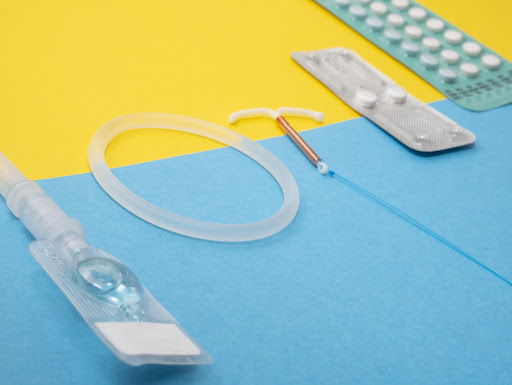In This Article
- Understanding Cannabis and the Reproductive System
- Cannabis and the Menstrual Cycle
- Cannabis and Reproductive Hormones
- Cannabis and Conception Time
- Cannabis and Assisted Reproductive Technology (ART)
- Does Marijuana Affect Birth Control?
- Does Weed Help with Menstrual Cramps?
- Conclusion: Can Smoking Weed Affect Fertility?
Can smoking weed affect a person's chances of getting pregnant? This question has lingered in the minds of cannabis-consuming family planners for ages. Despite an increasing amount of research on the subject, we still don't fully understand the connection between weed and fertility in individuals planning on having children.
This article will explore the current research on how cannabis affects fertility in women and why consumers should be cautious of anyone making definitive statements (either positive or negative) on the subject.
Understanding Cannabis and the Reproductive System
The endocannabinoid system (ECS) is a complex system of neurons found in humans and animals. The series of cells and neurotransmitters are essential in regulating numerous critical functions within the body. The ECS is also the system that cannabinoids like THC and CBD interact with to cause their various physical and intoxicating effects.
Select studies conducted over the past decade have suggested that the ECS may impact egg fertilization and other reproductive areas. A 2016 study confirmed similar findings, noting that the endocannabinoid system must be tightly regulated to ensure a healthy pregnancy.
So if cannabis interacts with the ECS, and the ECS plays a role in reproductive health, in what ways might smoking affect the odds of becoming pregnant (or the health of a pregnancy)?
Cannabis and the Menstrual Cycle

The four phases of the menstrual cycle are:
- Menstruation
- Follicular phase
- Ovulation
- Luteal phase.
Each month during ovulation, the ovaries release a mature egg, which then moves down the fallopian tube. If the egg doesn’t become fertilized, it gets broken down and reabsorbed into the body. At the same time, the womb lining leaves via a menstrual flow, also known as a period. Typically, a period starts about 10 to 16 days after the egg is first released into the body.
According to one study, cannabis use has the potential to alter the ECS, which can delay or even negate ovulation.¹ In select analyses, ovulating females who consume cannabis have been shown to have delayed ovulation, often ranging between 1.5 and 3.5 days.² Additional clinical research has found consistent results between humans and rhesus monkeys, with average follicular phases lasting 3.5 days longer.³
While these findings give insight into how cannabis may affect the ECS which plays a role in the menstrual cycle, it is far from the only variable that can influence fertility. For example, sperm count and motility can affect the chances of becoming pregnant.
Cannabis and Reproductive Hormones
Conception is made possible thanks to the synergistic work of reproductive hormones, like estrogen, and the cues they take from one another. Cannabis usage has shown potential to affect that synergy.
In a 2016 analysis, researchers noted that THC can potentially suppress the release of the luteinizing hormone (LH) and follicle-stimulating hormone (FSH).⁴ The study suggests that a small amount of cannabis could suppress LH levels during the luteal, but not follicular, phase of the menstrual cycle.
Available studies on the effects of cannabis on reproductive hormones remain limited, with results often being drawn from small samples or animal trials. As such, almost every study acknowledges the need for further research.
Cannabis and Conception Time
One 2017 study found that women who used cannabis within the past year took longer to conceive than subjects who had not consumed cannabis within the last year.⁵
However, a separate study that same year found little correlation between women's cannabis use and their ability to conceive.⁶ And research conducted in 2018 analyzing over 1,000 women who were trying to conceive concluded that cannabis use or the frequency of cannabis use did not factor in the length of time it took to get pregnant.⁷
With conflicting findings in these reports, it is clear that further research is needed.
Cannabis and Assisted Reproductive Technology (ART)
Assisted Reproductive Technology (ART) applies to any fertility treatment handling eggs or embryos. Most ART procedures involve taking the egg from the ovaries and placing them in a lab for sperm to be introduced before implanting the fertilized egg to the uterine lining. Select studies suggest that cannabis usage may affect the ART process.
In a 2019 study of 421 women who underwent 730 ART cycles, researchers found that self-reported cannabis consumers were twice as likely to experience pregnancy loss.⁸ But with participants self-reporting their cannabis consumption, the analysis noted that the results faced a possible exposure to misclassification and may not be generalizable to the public.
Does Marijuana Affect Birth Control?
There isn’t any scientific evidence that cannabis consumption directly interacts with birth control. However, the two medications may have similar effects on the body, which could increase (or decrease) the intended effects in some circumstances.
A 2013 study connected increased estrogen sensitivity levels to THC.⁹ Because birth control may also increase estrogen levels, researchers suggested that cannabis consumers monitor their dosage while taking birth control.
There is still more to learn, which is why we dedicated another article entirely to how cannabis impacts birth control.
Does Weed Help with Menstrual Cramps?
Studies have suggested that women tend to be more sensitive to cannabinoid effects than males. The sensitivities can be positive, potentially resulting in higher levels of pain relief and lowering certain medical conditions such as diabetes.¹⁰ And there is evidence to support that cannabis has the potential to ease the side effects of menstrual cramps. More specifically, It is believed that the ECS’s CB1 receptors are positively affected by particular cannabinoids, including THC, creating uplifted moods. Meanwhile, the CB2 receptors help with pain reduction and anti-inflammation properties.
However, adverse outcomes, such as increased dizziness, are also possible and should be taken into consideration when determining whether or not to use cannabis as a way to ease side effects of menstrual cramps.
Conclusion: Can Smoking Weed Affect Fertility?
Research on the effects of cannabis on ovulation, menstruation, and pregnancy remains in the early stages. Many user anecdotes point to cannabis as a sexual aid that supports more frequent and more satisfying sex lives. But some studies have suggested that smoking cannabis can have adverse effects on reproductive health and fertility.
With more research required to draw definitive conclusions on the potential benefits and risks of cannabis on fertility and pregnancy, it’s best to exercise caution and consult with medical professionals if you’re a cannabis consumer who is pregnant or trying to become pregnant.
Sources:
¹ Brents, Lisa K. “Marijuana, the Endocannabinoid System and the Female Reproductive System.” The Yale Journal of Biology and Medicine, vol. 89, no. 2, 27 June 2016, pp. 175–191, www.ncbi.nlm.nih.gov/pmc/articles/PMC4918871/.
² Ilnitsky, Sara, and Stan Van Uum. “Marijuana and Fertility.” Canadian Medical Association Journal, vol. 191, no. 23, 10 June 2019, pp. E638–E638, www.cmaj.ca/content/cmaj/191/23/E638.full.pdf, 10.1503/cmaj.181577.
³ Ilnitsky, Sara, and Stan Van Uum. “Marijuana and Fertility.” Canadian Medical Association Journal, vol. 191, no. 23, 10 June 2019, pp. E638–E638, www.cmaj.ca/content/cmaj/191/23/E638.full.pdf, 10.1503/cmaj.181577.
⁴ Brents, L. K. (2016). Focus: Sex and gender health: Marijuana, the endocannabinoid system and the female reproductive system. The Yale Journal of Biology and Medicine, 89(2).
⁵ Plowden, T.C, et al. EXPOSURE of ALCOHOL, TOBACCO, and MARIJUANA EXPOSURE and TIME to PREGNANCY. 30 Oct. 2017, www.fertstert.org/article/S0015-0282(17)30625-8/pdf. Accessed 15 Dec. 2022.
⁶ Wise, Lauren A, et al. “Marijuana Use and Fecundability in a North American Preconception Cohort Study.” Journal of Epidemiology and Community Health, vol. 72, no. 3, 22 Dec. 2017, pp. 208–215, 10.1136/jech-2017-209755. Accessed 5 June 2022.
⁷ NCBI. “National Center for Biotechnology Information.” Nih.gov, 2019, www.ncbi.nlm.nih.gov/.
⁸ Nassan, Feiby L., et al. “Marijuana Smoking and Outcomes of Infertility Treatment with Assisted Reproductive Technologies.” Human Reproduction (Oxford, England), vol. 34, no. 9, 29 Sept. 2019, pp. 1818–1829, pubmed.ncbi.nlm.nih.gov/31505640/, 10.1093/humrep/dez098. Accessed 16 Sept. 2022.
⁹ Craft, Rebecca M., et al. “Sex Differences in Cannabinoid Pharmacology: A Reflection of Differences in the Endocannabinoid System?” Life Sciences, vol. 92, no. 8-9, Mar. 2013, pp. 476–481, 10.1016/j.lfs.2012.06.009. Accessed 25 Aug. 2021.
¹⁰ Fattore, Liana, and Walter Fratta. “How Important Are Sex Differences in Cannabinoid Action?” British Journal of Pharmacology, vol. 160, no. 3, 25 Mar. 2010, pp. 544–548, 10.1111/j.1476-5381.2010.00776.x. Accessed 22 Oct. 2020.
The information in this article and any included images or charts are for educational purposes only. This information is neither a substitute for, nor does it replace, professional legal advice or medical advice, diagnosis, or treatment. If you have any concerns or questions about laws, regulations, or your health, you should always consult with an attorney, physician or other licensed professional.



